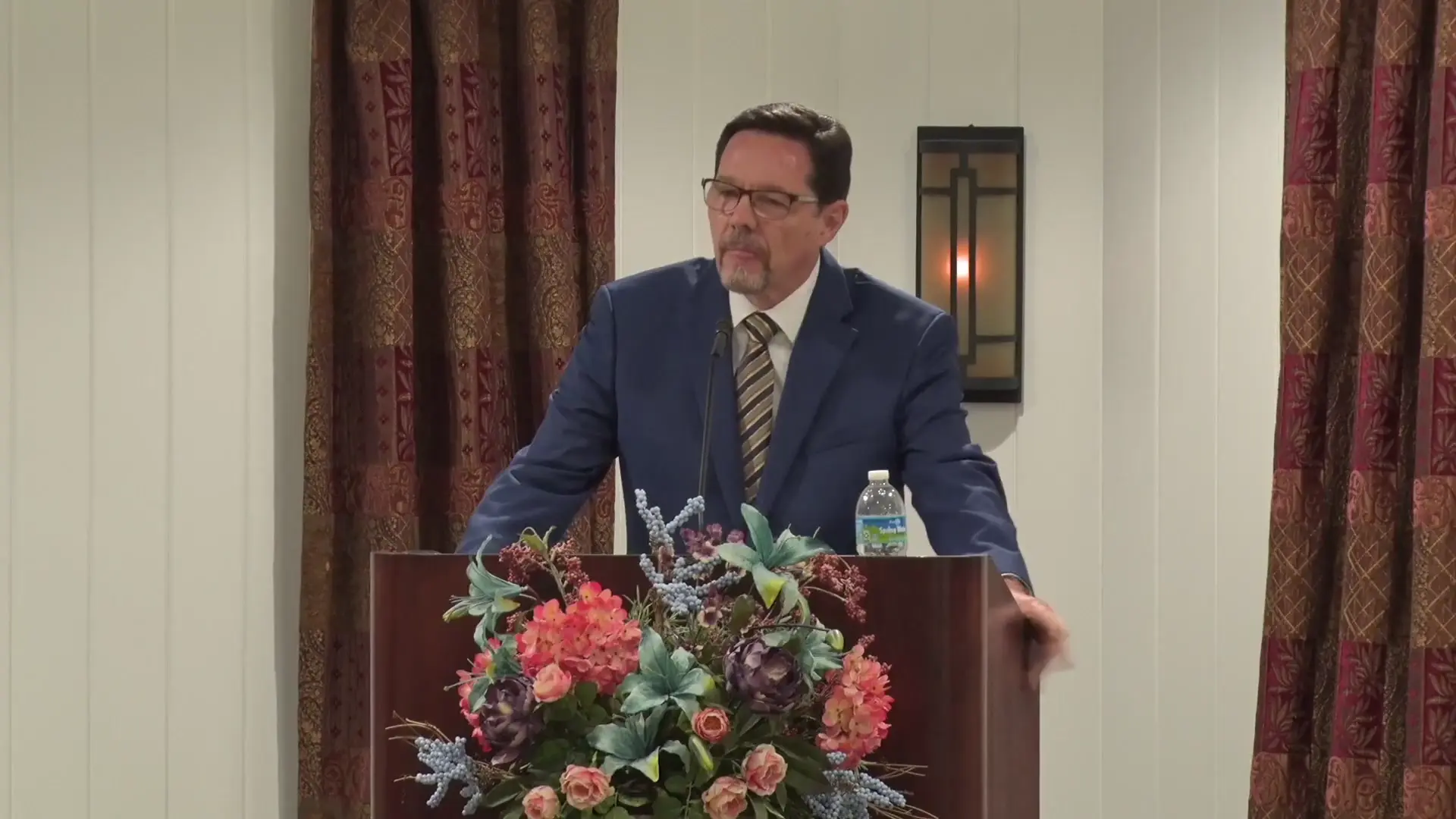Filter by Categories
Communication and Leaving Babylon (Part Two)
'Personal' from John W. RitenbaughOur human nature reflects the nature of malevolent spirits' attitudes. The only way to overcome it is through God's creating a new heart in us by His Spirit.
Communication and Coming Out of Babylon (Part 2)
Sermon by John W. RitenbaughAll of us are influenced by the culture of the world, guided and inspired by the prince of the power of the air. Satan has deceived the whole world.
Communication and Leaving Babylon (Part Three)
'Personal' from John W. RitenbaughChristians must continue to fight against self-centered and deception long after their calling to deepen and strengthen their relationships with God.
Communication and Leaving Babylon (Part One)
'Personal' from John W. RitenbaughWe are open to invisible communication from the spirit world—communication designed to conform us to the course of this world. Recognizing it is vital.
Communication and Coming Out of Babylon (Part 3)
Sermon by John W. RitenbaughGod commands us to come out of Babylon, giving us spiritual resources to do so, including faith, vision, hope, and love. These come through knowing Him.
Communication and Coming Out of Babylon (Part 1)
Feast of Tabernacles Sermon by John W. RitenbaughThe demons who already inhabit the earth look upon us as interlopers. We need to monitor our thought impulses, lest we be bothered by demons.
The Tongue: Our Tool of Power
'Ready Answer' by StaffOur hurtful words can create scars that last longer than any physical scar that sticks and stones may cause. Christians must harness the power of the tongue.
The Art of Tact and Diplomacy
'Ready Answer' by StaffMuch of a Christian's judgment will be based on his interactions with people. Enter tact and diplomacy, two necessary tools in the task of getting along.
Listen, Wait, and Then Speak
Sermonette by Ted E. BowlingJames provides some of the best advice on communication and control of the tongue. The correct order of communication is listening, waiting, and then responding.
Learning from Clichés
CGG WeeklyThrough every medium, Satan spreads his values, hidden within the stories our televisions broadcast, our movies so spectacularly feature, and our songs rehearse.
Flame Wars
Sermonette by Ryan McClureAre we part of flaming — the aggressive and offensive interaction between Internet users? Or do we pursue righteousness in our speech and communication?
Are You Sharp-Tongued? (Part Two)
'Ready Answer' by StaffJames' exhortation about the use of the tongue seems to stop with James 3:12. However, the rest of the chapter provides more wisdom on controlling our speech.
Fruit of the Flesh - On Conflict
Sermonette by Bill OnisickAs God's chosen saints, we must not let our keyboard or mouth defile us. Godly conversation includes stifling the urge to win the argument at all costs.
Gossip
Sermon by Richard T. RitenbaughThe apostle James says that the tongue can metaphorically start a dangerous fire. He warns that gossip, tale-bearing and being a busy-body is like murder.

Our Words Matter: Are They Harmful or Helpful?
Sermon by Ted E. BowlingEmotional damage from hurtful words is more harmful to our nervous system than we have imagined, lingering long past the healing time of any cut or broken bone

Frequencies
Sermon by Ryan McClureHuman bodies have frequencies and react to incoming frequencies. As we live in the Babylonian system, Satan's frequencies penetrate into our nervous systems.
Lost and Found: The Power of Apologies and Forgiveness
Sermonette by Jared M. EllisForgiving, even when there is no apology, reflects the Father and Jesus Christ. The prodigal son is a story of the deep love we should have towards each other.

Have You Become an Example to All Who Believe?
Sermon by Martin G. CollinsWhether we are called to welcome others, speak truthfully, keep commitments, or guard our own speech, credibility flows from consistent daily actions.
The Holy Spirit and the Trinity (Part Four)
Sermon by John W. RitenbaughBeing 'in Christ' does not refer to location, but instead our 'concern with' or 'involvement with' Him—and He with us.
Developing Discernment
Sermon by Martin G. CollinsHuman discernment can be developed and exercised, triggering early warning systems with the reactions of revulsion and confusion when confronted by evil.